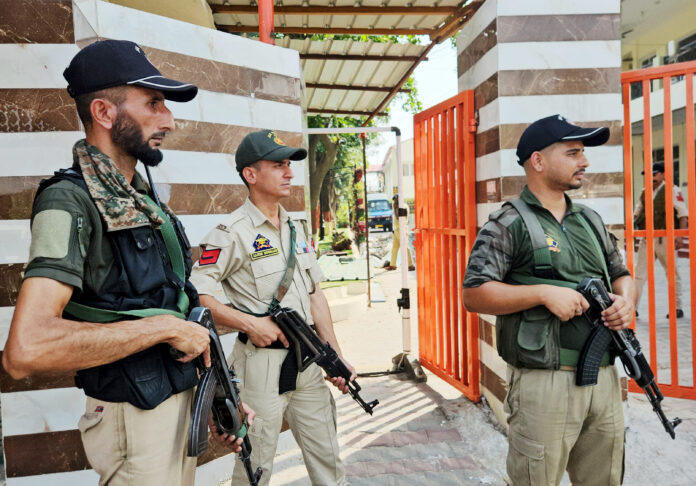
Amarnath Yatra begins July 3 amid unprecedented security following Operation Sindoor and terror threats.
JAMMU: The annual Amarnath Yatra, set to commence on July 3, will unfold under one of the most stringent security arrangements ever implemented in Jammu and Kashmir. Coming on the heels of Operation Sindoor, which significantly disrupted terrorist infrastructure operating across the border to destabilise the region, security forces remain on high alert for any retaliatory threats.
With intelligence inputs suggesting possible retaliatory actions by militant outfits, the Union Territory administration and central security agencies have rolled out a high-alert grid across the Yatra route. Airborne movement has been completely restricted over the pilgrimage corridor to eliminate aerial threats, while access protocols have been significantly tightened. “Militants know they cannot engage in direct confrontation, so we are anticipating heightened proxy threats,” said N, Ranbir Singh, Commandant, 84 Battalion CRPF. “Mobilisation of forces has begun, and maximum boots are being put on the ground.” In anticipation of sophisticated threats, K9 squads, counter-IED units, advanced drone surveillance, and anti-drone systems have been deployed along both the Baltal and Pahalgam routes.
Facial recognition technology is also being implemented at base camps to strengthen entry monitoring. The heightened alert comes following a high-level security review chaired by Union Home Minister Amit Shah earlier this month. Defence Minister Rajnath Singh, during his visit to the Northern Command headquarters on Thursday, reviewed operational preparedness and directed forces to ensure the Yatra remains incident-free.
Troops from the Army, CRPF, BSF, ITBP, CISF, and J&K Police have been strategically stationed at vulnerable points, particularly in Rajouri, Poonch, and South Kashmir, where terror activity has previously spiked. This year’s Yatra comes at a time when faith, sentiment, and national security intersect. Operation Sindoor, launched last month, marked a significant shift in India’s counterterror posture, inflicting heavy damage on terror launchpads across the Line of Control and in Pakistan-occupied Jammu and Kashmir (PoJK).
Officials believe that although the operation has weakened terror infrastructure, it may provoke frustrated terror groups into attempting soft-target strikes during the pilgrimage. Meanwhile, the J&K administration, in collaboration with the Shri Amarnath Ji Shrine Board (SASB), has ramped up logistical support, medical aid, and emergency communication networks to facilitate a safe and smooth pilgrimage experience for the lakhs of devotees expected to undertake the sacred journey. With sentiments, security, and national resolve converging, the Amarnath Yatra is poised to be more than a spiritual passage— it is a symbol of India’s commitment to peace, faith, and a firm response to terror.







